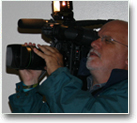 Trent Professor’s Breakthrough Research Featured in Prestigious Academic JournalFOR IMMEDIATE RELEASE Dr. Sheldene Simola’s Study of Interview Practices Garners International Attention in Canadian Journal of Administrative Sciences Friday, March 14, 2008, Peterborough A research paper coauthored by Trent University Business Administration professor Dr. Sheldene Simola and recently featured in the prestigious Canadian Journal of Administrative Sciences is getting a lot of attention for its breakthrough examination of employment interview practices. The study, entitled The Employment Selection Interview: Disparity among Research-based Recommendations, Current Practices and what Matters to Human Rights Tribunals, is the first to assess the actual interview practices of human resources professionals. Through the study, Prof. Simola and coauthors Simon Taggar of Wilfrid Laurier University and Geoffrey Smith of the University of Guelph, found that, despite the common understanding of how to conduct an interview fairly, current practices produce a heightened chance of bias and therefore a smaller possibility of candidates receiving a fair interview. The study also explains that structuring questions ahead of time and adhering to this structure throughout the interview process results in a fairer, and less biased candidate selection. “Highly structured interviews are ones that tend to ask the same questions of every candidate, that rely on behaviour-based questions, and that ensure certain forms of training” Prof. Simola explains. “The higher the level of structure or consistency across different candidates, the more likely you are to select the best candidate for the job. Also, the less opportunity there is for bias or unfairness to enter into the interview process.” Prof. Simola’s research finds that when faced with a candidate who struggles to think of an answer, 78 per cent of human resources professionals make up or use whatever prompts seem appropriate to them at the time, rather than relying on a predetermined list of neutral prompts. “When interviewers deviate from structure and start asking different questions of each candidate the process could become biased. Using impromptu probes or encouragement is one mechanism through which bias can enter in the interview process,” Prof. Simola says. “This bias can occur undetected by interviewers.” The practices of 301 human resources professionals in central Canada were examined in the study. The group tended to be university educated and hold professional HR designations. Most participants had six to nine years of experience in HR and had given more than 30 interviews in the last 12 months. The study was published in the Canadian Journal of Administrative Sciences in late 2007. Each quarter one study is highlighted in an effort to promote articles that will likely be of interest to practitioners and others members of the public as well as to research scholars. Prof. Simola’s work is the most recent featured selection. The Canadian Journal of Administrative Sciences is based out of the DeGroote School of Business at McMaster University. It is a multidisciplinary, peer-reviewed, international quarterly that publishes papers representing significant contribution to knowledge in all areas of administrative sciences. -30- For more information, please contact: |
































